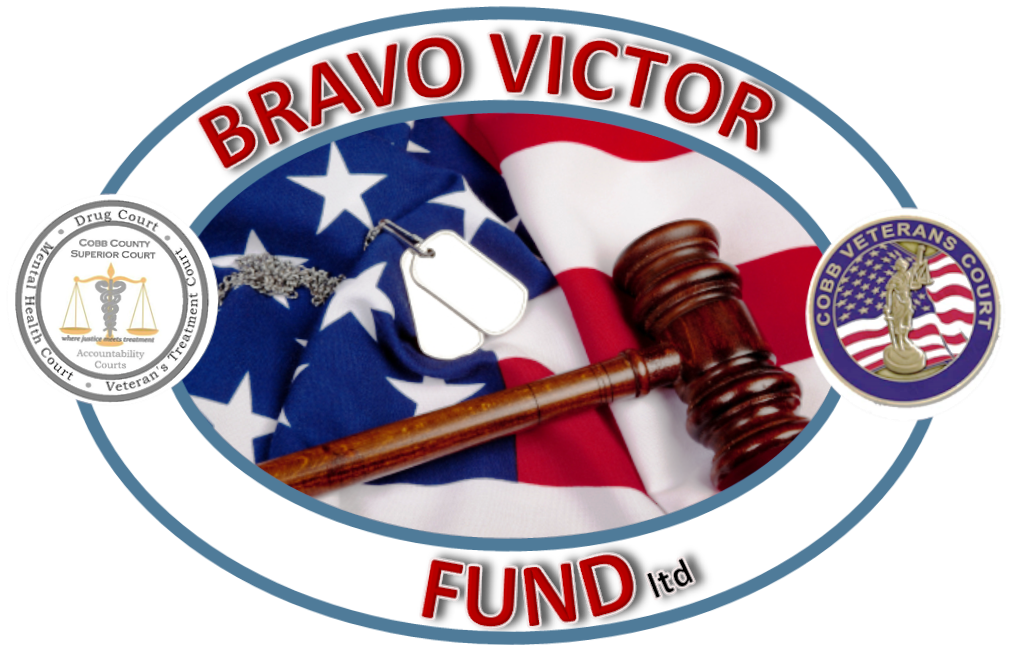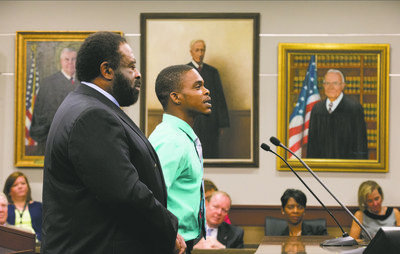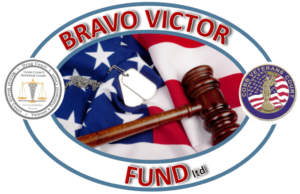Staff-Kelly J. Huff
MARIETTA — Cobb’s special accountability court for veterans celebrated its one-year anniversary Friday, and though no one has graduated from the 18-month program, the veterans involved say the program has changed their lives.
“It’s night and day. It’s tremendous,” said Kenneth Coleman, a former corporal in the U.S. Marine Corps and a participant in the veterans court. “I didn’t recognize that I had the issues I had until a year removed. With the things that they have in place, the people that they have in place, it’s almost a complete 180 from where I was a year ago.”
The Cobb Veterans Accountability and Treatment Court Program, overseen by former Marine and Cobb Superior Court Judge Reuben Green, takes in former members of the military with mental health or substance abuse issues who have been charged with a felony and provides an alternative to sending them to jail. Instead, they are enrolled in treatment programs, find employment and work with their mentors — who are also veterans.
Ernie Hines, Coleman’s mentor and a retired Marine sergeant major, said when he came home from serving in Vietnam, there was nothing like the veterans court.
“We’ve been there, so we know what it’s like, and we didn’t have the opportunity to have someone talk to us the way we’re trying to do them,” Hines said.
Coleman has been in the program for a year; he was one of the first veterans to join. He said he is grateful the program offered him not only an alternative to prison, but other resources like counseling and addiction treatment to help improve his life.
“Honestly, it’s a second chance. It’s a second chance, and I think — it’s hard for me to put into words. It’s more of a feeling than anything,” Coleman said. “We make mistakes. I’m accountable to them wholeheartedly, and I’m just glad for the opportunity because I do feel that prison wasn’t the answer for what I was going through. And it’s great that they had something in place that would serve as an alternative and give me another chance to get my life right.”
Bill Howerton, mentor coordinator for the veterans court and a retired U.S. Army major, said there are 16 participants in the program and 28 mentors. Howerton said he’s had no trouble finding veterans to sign up as mentors.
“We’re finding that a lot of people want to give back,” Howerton said, adding he volunteers about 30 hours a week to help out. “The other thing is, and this is very selfish on my part, is that I’m able to help another warrior.”
Coleman said the involvement of other veterans as mentors and having other veterans to go through the program with is very helpful.
“They understand. It’s harder for some people sometimes from the ‘civilian sector’ to really understand the things that we’re going through or the things that we’ve seen, the things that we’ve done,” Coleman said. “Ernie, he knows where I’ve been. He wore the boots also, so his advice to me, his tutelage, his guidance, it means a lot to me because he knows where I’m coming from, as opposed to someone else who may not understand or just doesn’t get it.”
Hines and the other mentors volunteer their time to work one-on-one with the program’s participants and are committed to attending the veterans court session every Friday morning. Hines said seeing the transformation in the mentees is gratifying.
“The first time, you see a guy in shackles, chained up, going through court. And then, six, seven months to a year later, seeing him as a productive individual — you can’t ask for any more gratitude than that. That’s my reward,” he said.
Continuing to serve
At Friday’s ceremony for the anniversary of the veterans court, two participants were “phased up” into phase three of the program. Howerton said this means they’ve met every requirement for the first two phases — going to treatment, working on finding employment — and now, in phase three, they are given a bit more freedom, such as fewer check-ins.
One of the veterans phased up was Robert Avrit, a former specialist in the U.S. Army. He said it felt “fantastic” to move into the new stage of the program.
“It’s very validating for the work that I’ve been doing and lets me know that I’m on the right path this time for moving forward,” Avrit said.
Gary Stroud, Avrit’s mentor and a retired lieutenant colonel in the U.S. Army, said the program tries to pair mentors with participants who served in the same branch of the military to add another level of common ties and comaradarie. Stroud and Avrit also both served in Iraq at the same time, adding another dimension to the connection between the mentor and his mentee.
Stroud said when he met Avrit, he had to encourage him and assure him that he could complete the program.
“I saw in him a lot of potential that he didn’t even realize for himself,” Stroud said. “I basically had to convince him that he could do this and basically be successful and complete the program. He was very doubtful in his own abilities to move forward in the program.”
Brandon Musser, a former sergeant in the U.S. Marine Corps, also phased up Friday. He said the program has helped him change his life, and he gives the credit to the program’s mentors.
“(The program has) helped a lot,” Musser said. “I had a bad problem with the use of alcohol. The accountability of this court helped me maintain sobriety. It’s also helped me deal with issues that I was dealing with post-traumatic stress disorder. A lot of it has to do with the mentors, I believe. They’re really the key to this. … I’d say it’s comforting to know that I’m not the only one dealing with these issues.”
Peter Varljen, a former colonel in the U.S. Army and Musser’s mentor, said the court maintains the military’s attitude of no one being left behind.
“Military service is all about taking care of all of us,” he said. “When you retire, you kind of miss the comradery, you kind of miss the one-on-one. And so this is an opportunity for us to continue to give back, to continue to serve. It’s a continuation of our lifelong commitment to our military institution and to make a difference.”
Partnership with the VA
In attendance at Friday’s ceremony was Leslie Wiggins, medical center director for the Atlanta VA Medical Center. Wiggins said the partnership between the Department of Veterans Affairs and Cobb’s veterans court is an example of the “ideal way” to treat veterans.
“This interdisciplinary approach and partnering with the community is the most successful method (to treat veterans). It really is. That’s why we’re here,” Wiggins said.
The Atlanta VA Medical Center has a staff member dedicated to helping the participants in Cobb’s veterans court, Wiggins said. The VA offers mental health treatment, substance abuse treatment and trauma recovery focusing on post-traumatic stress disorder, Wiggins said.
“It’s a great partnership because a lot of what we have been facing and keeping them in treatment is related to small and large problems in the legal systems,” she said. “So while they’re dealing with the legal problems, they know they can also get medical treatment to keep them stable.”
Although the veterans court has only been in operation for a year, Wiggins said the program is decreasing recidivism and makes the veterans more compliant with medical care.
“Oftentimes, we don’t have the leverage unless a veteran is really critical — threatening to harm themselves or others — to force them into treatment,” she said. “But when you have a partner in the court system like you have here that says if you participate in these elements of your treatment, if you participate in these elements of this program, you’re going to get a benefit of maybe reduced time or something like that to help you.”





